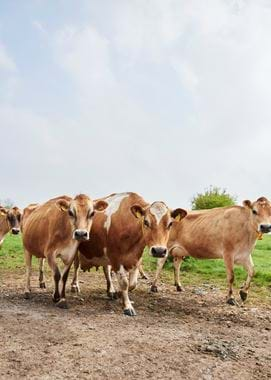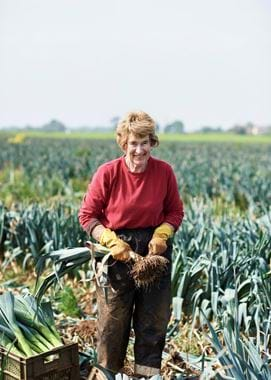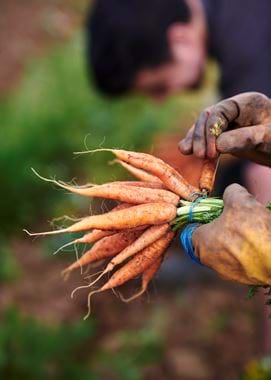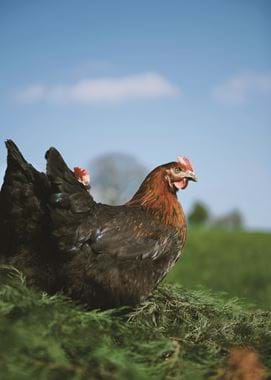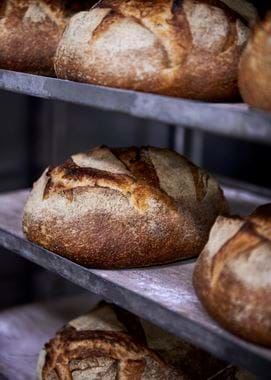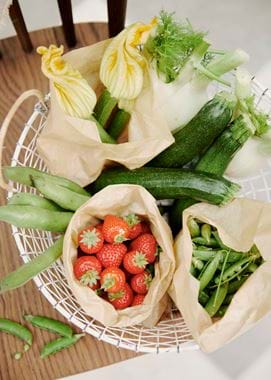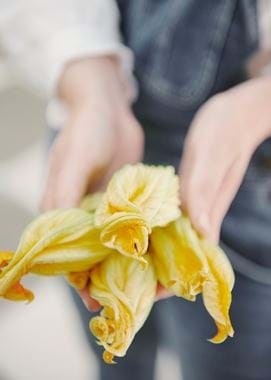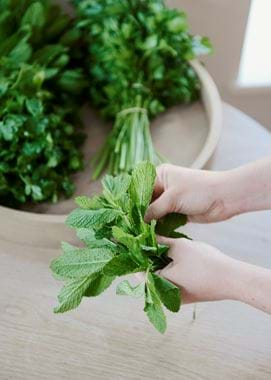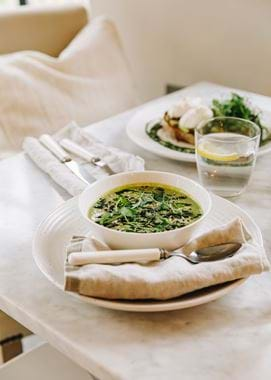Slowly does it: the slow food movement today
Slowly does it: the slow food movement today
The slow food movement has been attracting leading foodies in the UK for some years now, but lockdown saw more of us discovering the many benefits of farm to table food, as journalist Fiona McCarthy discovers.
‘Let us defend ourselves against the universal madness of “the fast life” with tranquil material pleasure,’ reads the international Slow Food movement’s manifesto, written in 1989, a couple of years after its founder, journalist Carlo Petrini, and a group of activists protested outside the opening of a McDonald’s in Piazza di Spagna in Rome.
Three decades later, Slow Food – now with over 1,500 chapters operating in more than 150 countries – still champions what Petrini extolled from the very beginning: good (quality, flavoursome and healthy food for all), clean (production that does not harm the environment) and fair (accessible prices for consumers and fair conditions and pay for producers).
The movement’s aim to celebrate regional specialities, gastronomic pleasure and a slower pace of life was readily embraced here in Britain, not only by leading Michelin star chefs like Michel Roux Jr at Le Gavroche, but also thanks to groundwork already long laid by existing bodies such as the Soil Association, founded in 1946, with its organic certification system launched in the 1970s, and then in the 1990s, a programme was created to support farmers through the difficult organic conversion period.
For Australian-born chef Skye Gyngell, who oversees the kitchens of Spring at Somerset House and the luxury Hampshire hotel Heckfield Place, the movement in the early noughties was ‘life changing,’ she remembers. ‘My whole palate changed, literally, because what Slow Food did so beautifully was tell the important story of the artisan and the origin.’
In turn, it sowed an important seed for Gyngell, at the time trailblazing a new way of cooking at Petersham Nurseries. When she went solo in 2014 at Spring, she started working with leading Herefordshire biodynamic farmer Jane Scotter of Fern Verrow to grow all of the fruit, vegetables and flowers now used for both venues. ‘If Slow Food changed my approach to sourcing food, Jane has changed the way I cook. The farm writes our menus because we work only with what it produces. It forces us to be more creative,’ she says.
It’s an idea not lost on many of us during lockdown when faced with supermarket shortages for even the most basic ingredients like eggs and flour. A recent Food Foundation report shows veg box sales sky-rocketed by more than 111% since the pandemic took hold, meaning around 3.5 million boxes of locally grown, seasonal fruit and vegetables have been delivered to homes around the UK since March.
Alongside established veg box schemes such as Abel & Cole, restaurant-only suppliers like Smith & Brock reinvented themselves overnight to provide fruit and veg boxes to the wider public. At The Newt in Somerset, to ensure nothing from its magnificent eight-acre kitchen garden went to waste, the hotel started to deliver not only daily cropped salad leaves and baby carrots, but also meat from its onsite butcher’s own family farm, and buffalo haloumi and mozzarella made in-house. It also made sense for restauranteurs like the Wright Brothers to become domestic suppliers, delivering their sought-after Irish Carlingford oysters to the door. ‘Working with people like Carlingford Oysters is the “why” we get out of bed in the morning,’ says co-founder Robin Hancock.
This is exactly what Shane Holland, executive chairman of Slow Food in the UK (SFUK) today, would love to see more of going forward. He simply wants us to cook more, ‘using as many raw ingredients as possible, bought directly from the grower or producer, or from places like farmers’ and street markets, where there is real and close connection to the source,’ he says. ‘You will get much better value, taste and flavour; it will be much fresher and more nutritious; and it helps to create a sustainable British food system we all need and deserve,’ he enthuses.
‘We also need to better embrace the idea of wonky veg,’ Holland furthers. Slow Food’s Ark of Taste global project is also helping to guard against more than 5,000 ingredients or varieties from around the world, including a large number of our very own heritage apples, from dying out. ‘The result of global monoculture hybridisation – for crop size, frequency and shape – unfortunately also brings disease.’ The organisation also campaigns for better hospital food, helps with food drives for soup kitchens and those living in poverty, and runs school programmes which teach kids how to cook. ‘Kids say they hate vegetables until they cook them themselves, and then they love them.’
Lockdown has proved that, collectively, we can make a dramatic change simply by the way we shop and eat. As Gyngell observes, ‘I really believe in the small brushstroke – the value in working in one small way to change something deeply and profoundly.’
Some of our favourite online suppliers:
Italian artisan dried meats, cheeses, Sardinian bottarga, and Japanese specialities with a twist, from The River Café supplier Vallebona (for Spanish flavours, try Brindisa).
Grass-fed beef, as well as lamb, pork and chicken, from Cornish butchers Philip Warren, suppliers to top restaurants. Also try The Ethical Butcher and Pipers Farm.
For sustainably farmed fresh and smoked trout try Hampshire’s Chalk Stream. For fish straight from the fisherman’s hook to table, try Fish for Thought and Pesky Fish.
For the best of British cheese, visit Neal’s Yard Dairy. Also championing local cheesemakers are The Fine Cheese Co. and Paxton & Whitfield.
For good quality, good value fruit & veg boxes, delivered nationwide, the Soil Association has a great online resource helping you to connect with local growers.
The photographs included here were all taken at our Bath cafe, The Provenist, or at the farms and kitchens of our Somerset and Wiltshire-based suppliers: Ivy House Farm Dairy, Lovejoys (and their network of local vegetable farmers), Clarence Court, John Hurd’s Organic Watercress and Bertinet Bakery. To find out more about our slow approach to food at The Provenist, follow us on Instagram or chat to the team if you pop by the cafe.

